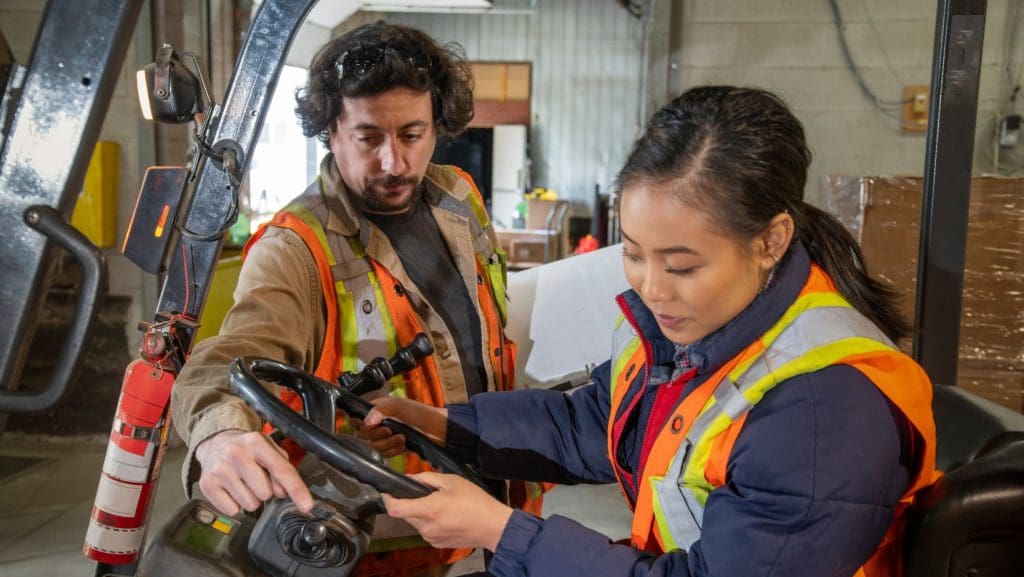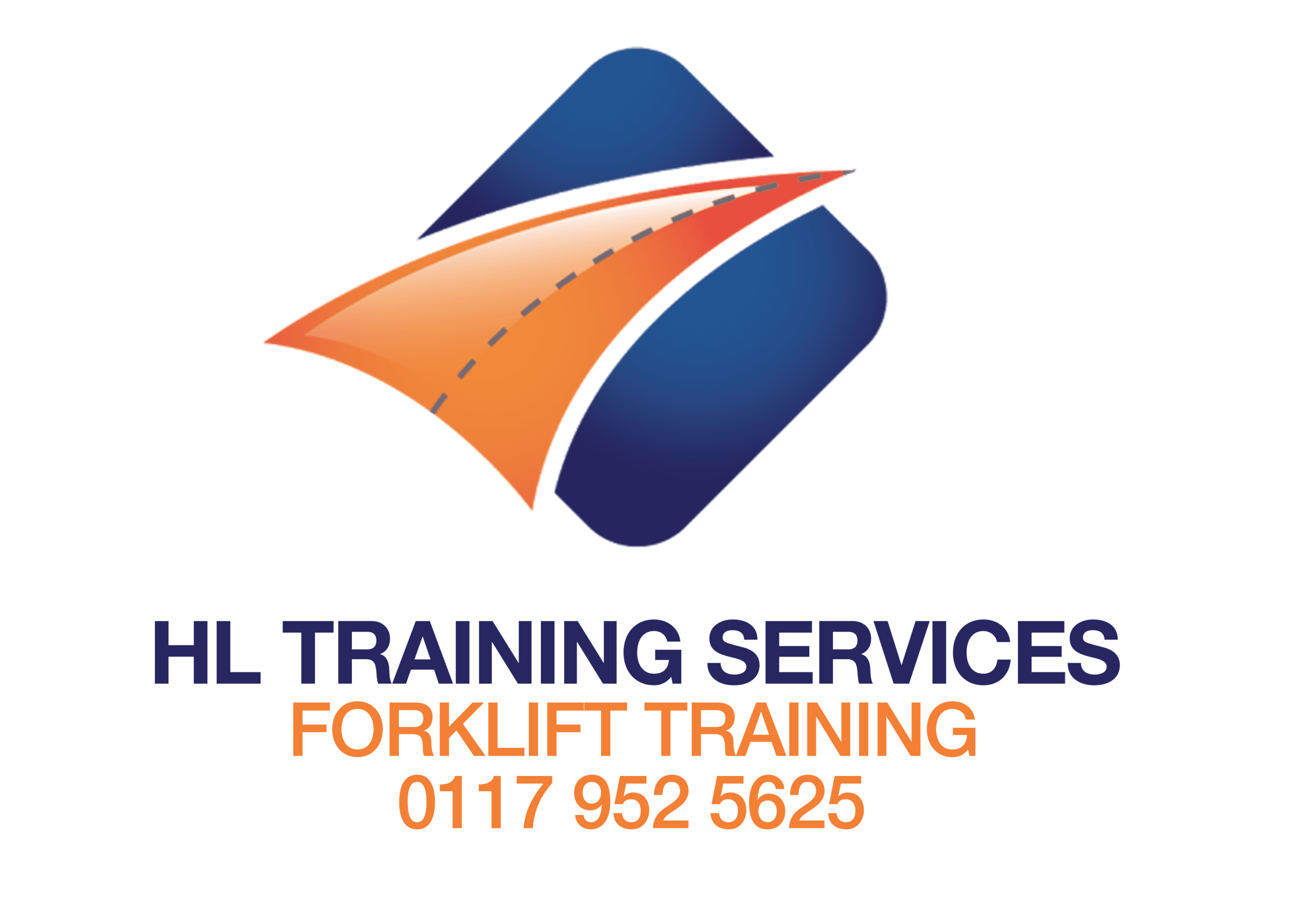
A forklift is a massively helpful piece of equipment to have on-site. These motor-driven industrial vehicles have a forked platform to lift and lower cargo appropriately and are designed to move and carry heavy loads over short distances. They work by maintaining a centre of gravity while transporting heavy cargo, making the movement of large equipment, panels or products easy and efficient.
But when it comes to operating these handy pieces of machinery, it can be difficult and dangerous. In fact, they can only be driven by trained operatives who have undergone forklift training to learn the skills and manoeuvres necessary for the equipment.
Luckily, forklift safety is our forte at HL Training. We have the operative training courses your team needs to handle these machines effectively and efficiently. To help you get started before training or to refresh your knowledge, we have put together some important forklift health and safety rules you need to know.
Do’s and Don’t’s of Forklift Safety
Did you know that in the UK, on average, 1,300 forklift-related accidents occur every year? This is according to the UK Material Handling Association (UKMHA), which theorises that five forklift accidents occur every workday.
So, it is essential that your team tasked with operating a forklift is trained, certified, and competent to ensure they can handle the machinery safely and efficiently. Here are some forklift health and safety rules to better understand how nuanced forklift training can be.
Don’t Overload the Machine
As we have mentioned, a forklift operates by maintaining a centre of gravity when lifting heavy loads. For this reason, it is imperative that you do not attempt to overload your machine past what it is capable of. If you do overload your forklift, you risk the vehicle tipping over due to unevenly distributed weight or the cargo falling off the machine and causing injury to yourself or others.
Similarly, a load which it too large for your forklift vehicle can obstruct the view, leading to further accidents caused by poor visibility when driving. You should also not stack loads on your forklift incorrectly, for example, stacking heavy items on top of lighter objects.
Do Drive Responsibly
If you were driving a car, you would ensure you maintain speed limits and adhere to road safety. So, why wouldn’t you take the same care and responsibility when driving a forklift?
A forklift is a vehicle, so you must ensure operatives drive them responsibly and safely. This means driving the forklift at a speed that allows you to come to a stop safely, especially in the event of an emergency. You also need to slow down speed as you turn a corner or approach an intersection. Failure to do the former can result in the forklift tipping over as it rounds a turn. The latter can lead to collisions with other machinery or colleagues, resulting in injury.
Don’t Neglect Training
As you may be aware, anyone wishing to be a forklift operator must have appropriate training before attempting to use it. Certified training for forklift operators is recorded with an ID card that can be presented to visitors on-site, managers and supervisors if needs be. Training must also be given by a trusted provider, like our team at HL Training, who can deliver accredited forklift training.
Even if you have had previous forklift operative training, you must ensure you keep up to date with refresher training courses. This ensures you do not forget valuable tips and stay updated with the latest safety advice and practices.
Do Maintain Your Forklift & Equipment
Just like you should keep up-to-date on the latest safety regulations and forklift training, you must ensure your forklift vehicle also maintains quality. You should carry out regular maintenance checks on your forklift and ensure it works optimally and safely. Failure to carry out regular maintenance can mean your forklift fails or breaks down at an inopportune time, resulting in injury to yourself and those around you or damage to the vehicle and load.
When servicing your forklift, you should pay special attention to the brakes, tyres, and transmission, and the fork itself. Malfunctions with any of these components can be disastrous if left unchecked. If you find the forklift unsafe to operate during your shift, immediately alert your supervisor or manager and do not attempt to use the equipment until it has been fixed.
Don’t Obstruct Paths
Typically, your site will have routes and paths most commonly used by forklift operators to navigate. If this is not the case, this should be a system you put into place. It can lower the risk of accidents and collisions onsite as staff members will be more aware of their surroundings.
It is also important that any paths, roads or routes used on site are free of any obstructions and always kept clear. Similarly, you should avoid storing shelves, bins and other miscellaneous equipment on corners, even if not directly on the road, as this can decrease visibility.
Do Be Aware of Pedestrians
Finally, forklift operators should always be aware of their surroundings and pedestrians. It is the forklift driver’s responsibility for not only their own safety but also for those around them. This means you must be conscious of pedestrians walking or colleagues working on the site around you and not operate the machine if they are in close contact.
Ensure you have suitable driver aids, such as mirrors and CCTV, attached to your forklift if you have identified any blind spots. You are also responsible for alerting those around you of safety precautions with the forklift. For example, they should not attempt to walk under the fork or load when raised.
How to Improve Forklift Safety
Contact us today if you’re ready to learn more about forklift operative training. The above information is just a snippet of the many rules, tips and advice that form the forklift health and safety rules. With appropriate and accredited training, you can ensure you and your team have all the necessary information and tools to operate a forklift safely and effectively. It also ensures your site and operations meet the standards and regulations required. Read more about forklift operator training available from HL Training and about us today.





